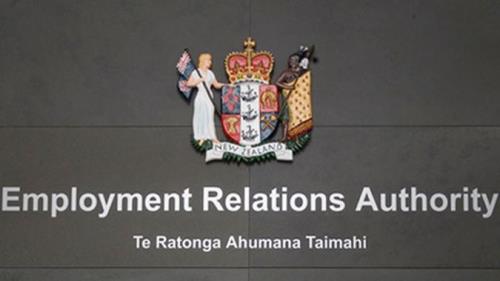Mid-Year Case Round Up
9 June 2020

We are approaching the mid-point of 2020. While a lot has happened over the last few months, and much has changed, the Employment Relations Authority and Employment Court has continued to function and issue decisions.
The are some recent decisions that are of note for both employers and employees.
Courier driver declared an employee
The Employment Court issued the decision of Leota v Parcel Express Ltd last month declaring Mike Leota, a courier driver, to be an employee of Parcel Express Limited.
Mr Leota had signed an independent contractor agreement, purchased his own van (with assistance from Parcel Express) and hired specified equipment from Parcel Express in order to undertake his duties. He was restricted to an area set by Parcel Express and had to organise cover if he wanted to take leave. Mr Leota also has a non-compete period of 6 months after his contract ended. The Court found that Mr Leota did not understand what his status was and faced significant restrictions in his work.
Upon evaluating these factors, the Court found that that Parcel Express was exerting a high level of control over Mr Leota and the reality of the arrangement was that he was an employee of Parcel Express.
This case, while limited to Mr Leota's specific facts, has resulted in discussion of whether it will lead to broader changes in the courier industry, where drivers are typically engaged as independent contractors.
Interestingly, two weeks later, the Employment Court followed up with the decision Southern Taxis Ltd v Labour Inspector ruling that four commission-based taxi drivers were employees. The Court noted that the extent of the control exercised over the drivers, the extent to which the drivers were integrated into the business and the economic factors all supported a finding that the drivers were employees, not contractors.
These cases come as clear reminders that industry practice does not always reflect the legal reality.
Company fails to include bonuses in holiday pay calculations
In April, the Employment Court issued its decision in the case of Metropolitan Glass & Glazing Ltd v Labour Inspector where it examined whether bonus payments had to be factored into annual leave payments.
When an employer pays and employee on annual leave, they must pay the greater of the employee's ordinary weekly pay, or their average weekly pay calculated from their gross earnings. Gross earnings include all payments the employer is required to pay to the employee including salary, allowances, and incentive-based payments, but not discretionary payments.
Metro Glass's employment agreements provided for "discretionary" bonuses to be paid on achievement of key performance indicators or projects. In 2016 the company launched a "Short-term incentive scheme" ("STI") which provided for discretionary bonuses aligned to company earnings, retrofit sales and prompt delivery. The terms of the scheme included that payments did not constitute gross pay under the Holidays Act.
Metro glass argued, among other things, that the bonuses under the scheme were discretionary and thus do not form part of the employee's holiday pay calculation.
The Employment Court held that payments under the STI scheme were to provide an incentive for performance and were tied to productivity targets and therefore fell within the definition of gross earnings and had to be considered for the purposes of holiday pay. The fact that the terms of the scheme disputed that was irrelevant as you cannot contract out of the Holidays Act.
This is a decision that many employers should bear in mind if they pay their employees bonuses. Even if a bonus is labelled "discretionary", if it is ultimately tied to targets and/or performance, that may not be the case, and this could result in holiday pay underpayments.
Employee awarded $65,000 for health and safety breaches
A further recent case, JCE v Department of Corrections, concerned a corrections officer who was assaulted while at work, and then over the following years he continued to work but his health declined, resulting in medical retirement. JCE claimed the Corrections was responsible for the assault and failed to look after him. The Authority held that he had established a breach of contract and an unjustifiable disadvantage for Corrections failing to take reasonably practicable steps to protect him from the foreseeable risk of harm at work. He was awarded $30,000. JCE took the claim to the Employment Court seeking increased remedies.
The Court found the Authority erred in not awarding damages for breach of contract and awarded damages of $65,000. The Court also found that he had made out a personal grievance from the same conduct which would justify compensation of $30,000. However, the Court determined this amount was less than, and effectively subsumed into the damages award so no further compensation was awarded.
This decision comes in the context of increasing hurt and humiliation compensation awards. It perhaps indicates an additional way that the Court may increase remedies and reflects a growing trend of increasing remedies for failures to protect and employee's health and safety.


